Why are espresso machines so expensive? And how to tell if yours is worth the splurge
Sometimes you pay for a brand name, sometimes it's sheer quality. Here's how to check the value of your machine
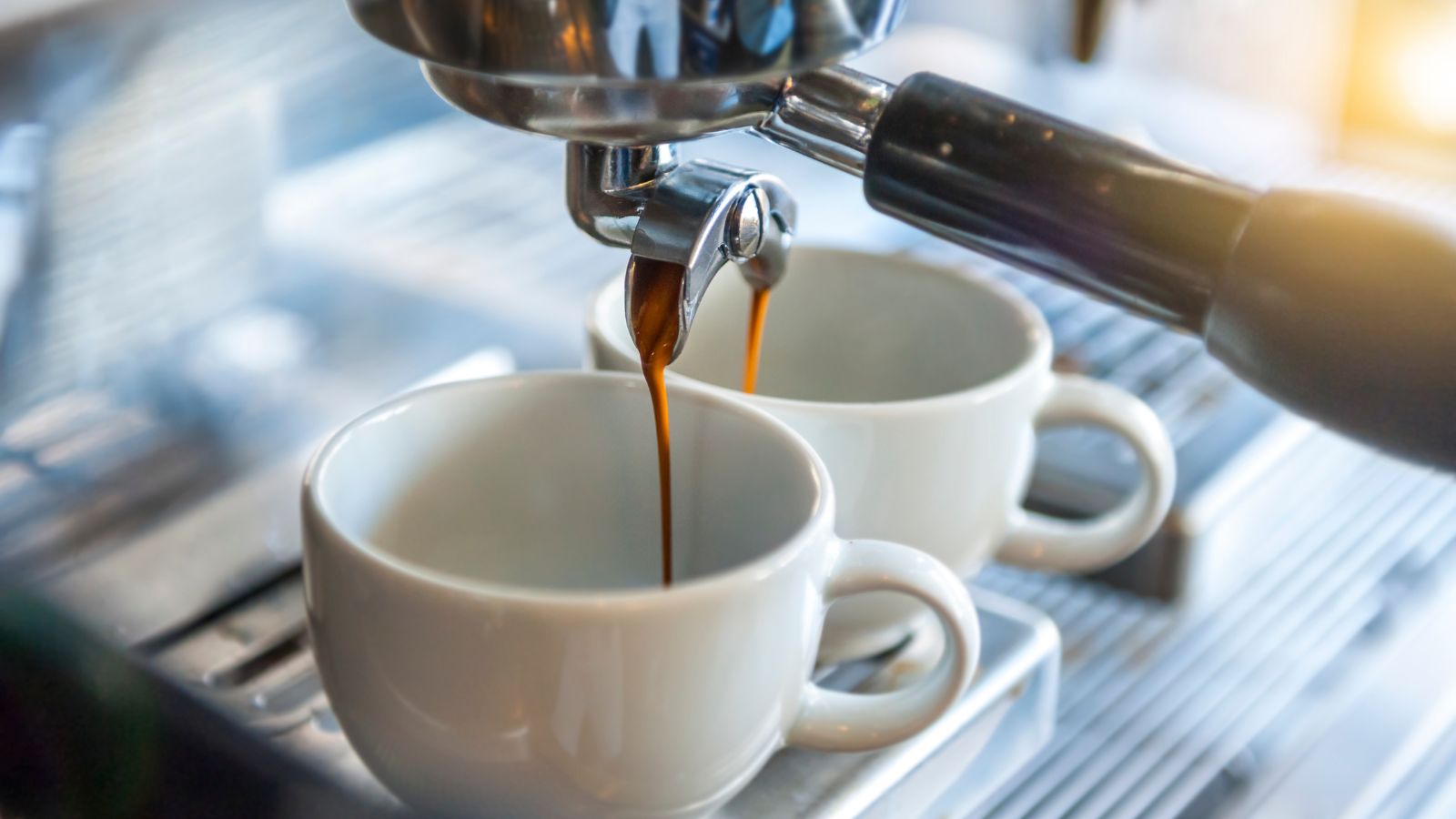

Why are espresso machines so expensive? Are espresso machines worth the money? You'll have probably asked yourself both of these questions – and more – when you're shopping for a coffee maker, because, even if you want one of these specialist coffee makers, it can be hard to justify a four-figure price tag.
As a barista, my default answer is that the best espresso machines are worth every penny. Nothing compares to a freshly ground, expertly extracted, cup of craft coffee. However, if you're new to brewing, you might not like the idea of a $2,000 coffee maker when you could pay $20 for a perfectly good French press.
I've done the math and spoken to the manufacturers, coffee specialists, and interior designers to approach the price problem of espresso machines from all angles. I've found some cheaper, but still excellent, espresso machines, as well as alternative options to help you stay savvy in your quest for the perfect coffee station essentials.
Why are espresso machines so expensive?
Before I get into the details of everything, it's worth doing the math. If you pay $3.65 for a Starbucks, five days a week, you’ll spend more money at Starbucks ($949) than you would on the average coffee machine in only one year. These machines can last longer than ten years, so you can save a lot by taking the hit and investing in a coffee maker. However, if you make a mistake and don't buy the right coffee maker for you, then it'll work out to be more expensive per cup.
What is an espresso?
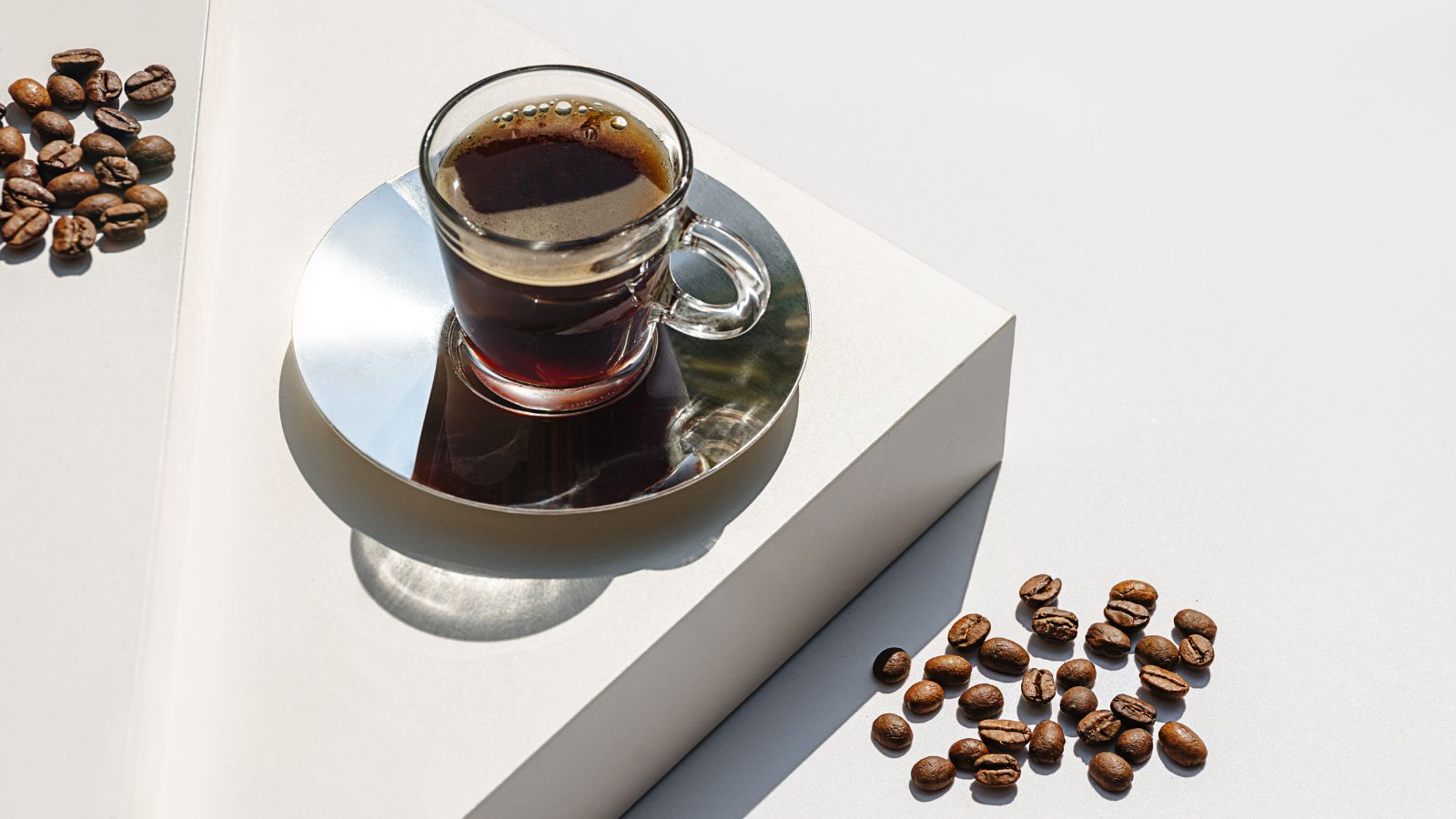
You can’t have coffee without an espresso. It’s the most concentrated form of coffee that you can get. It’s dark, intense, and carries all the aromatic coffee oils. Add a little water, milk, or cream, and you’ll get any coffee you fancy.
You don’t need an espresso machine to make an espresso - a stovetop espresso maker and most normal coffee makers will do the job. However, if you’re looking for that coffee-shop comfort, there’s nothing quite like the quality of an espresso machine.
What is an espresso machine?
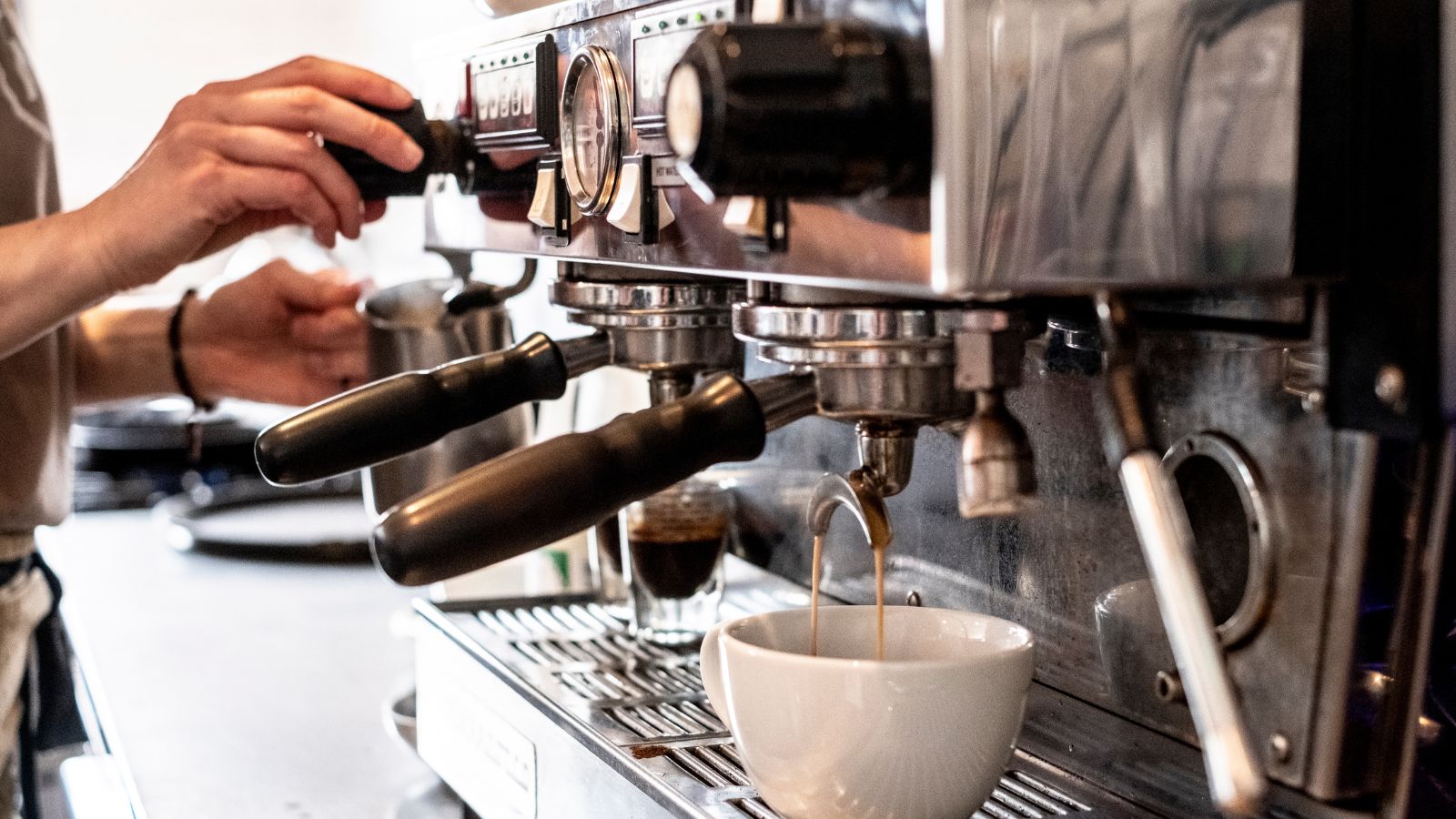
The clue is in the name: espresso machines specialize in making top-quality espressos.
An espresso machine works by forcing highly pressurized, hot water through finely ground coffee beans. The espresso liquid looks dark but will have a deep hazelnut foam on top, known as the crema.
Aside from that, there’s no standard for what they look like and what they can do. It’s likely that they’ll have temperature-controlled water and a milk-frothing function, but smart features and automatic settings aren’t guaranteed. Most machines will have a portafilter. This is the long handle that you slot into the machine, whilst channelling your inner barista. This holds your coffee grounds in place for extraction.
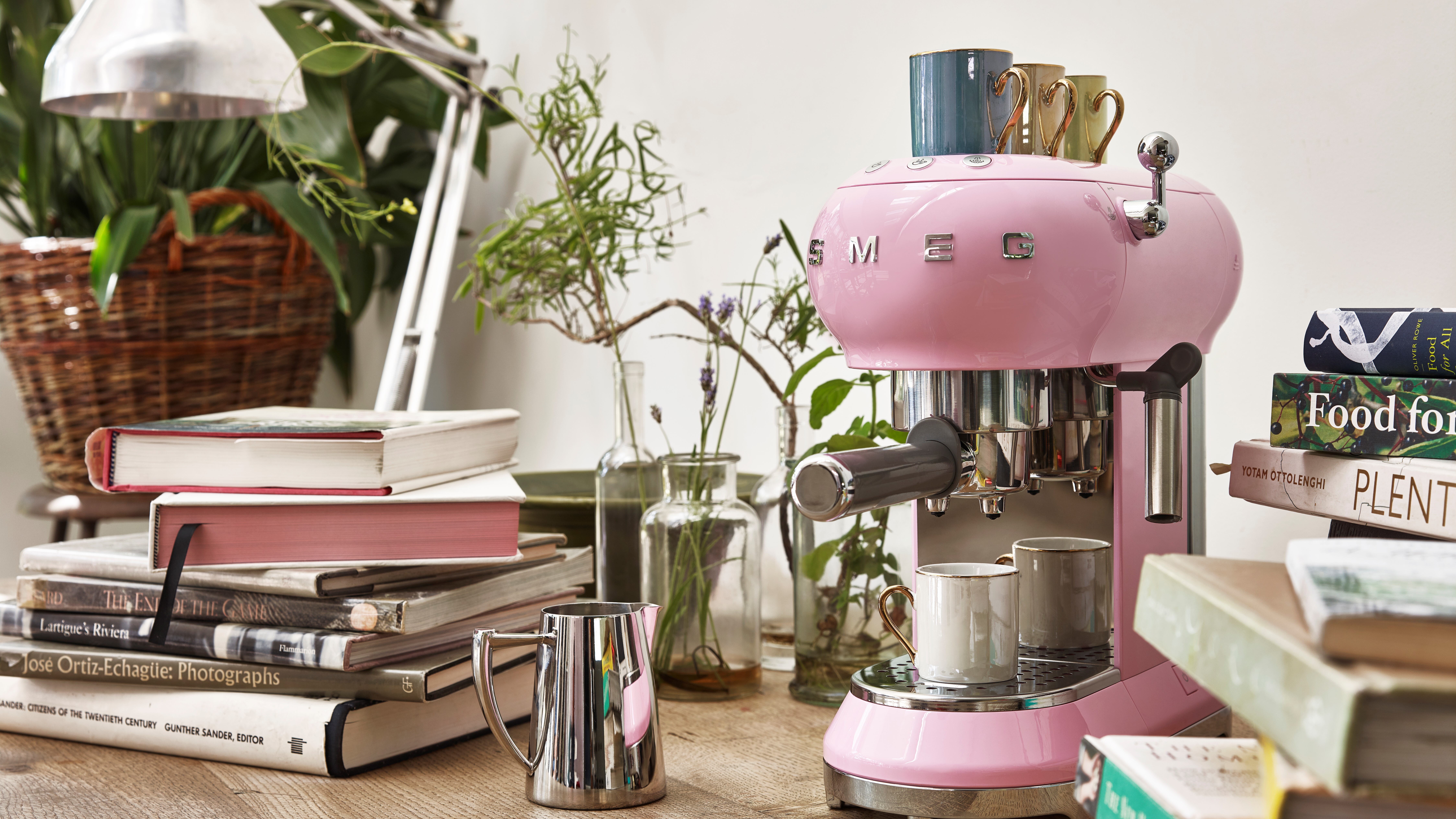
This means that there’s lots of variety in espresso machines. You can have automatic models and semi-automatic models. I spoke with Lukas Van Vyve, founder of Emergent Brew to find out which types he recommends.
His answer, as with many appliances, is that ‘It really depends on what you want. Automatic espresso machines will do everything for you: they grind the beans, brew the coffee, and froth the milk. They’re a great choice if you want convenience and consistency, but they can be pricey and bulky.'
When we spoke about the semi-automatic machines, he advised that ‘These are for people who want to be more involved. You can grind your own beans, tamp the grounds, and snap the portafilter into place.'
There’s a lot more for you to do, but these can be more portable, and affordable, and, if you’re passionate about coffee, they’re a lot more fun too. If you want an idea of what good espresso machines look like, here are two of my favorite models:
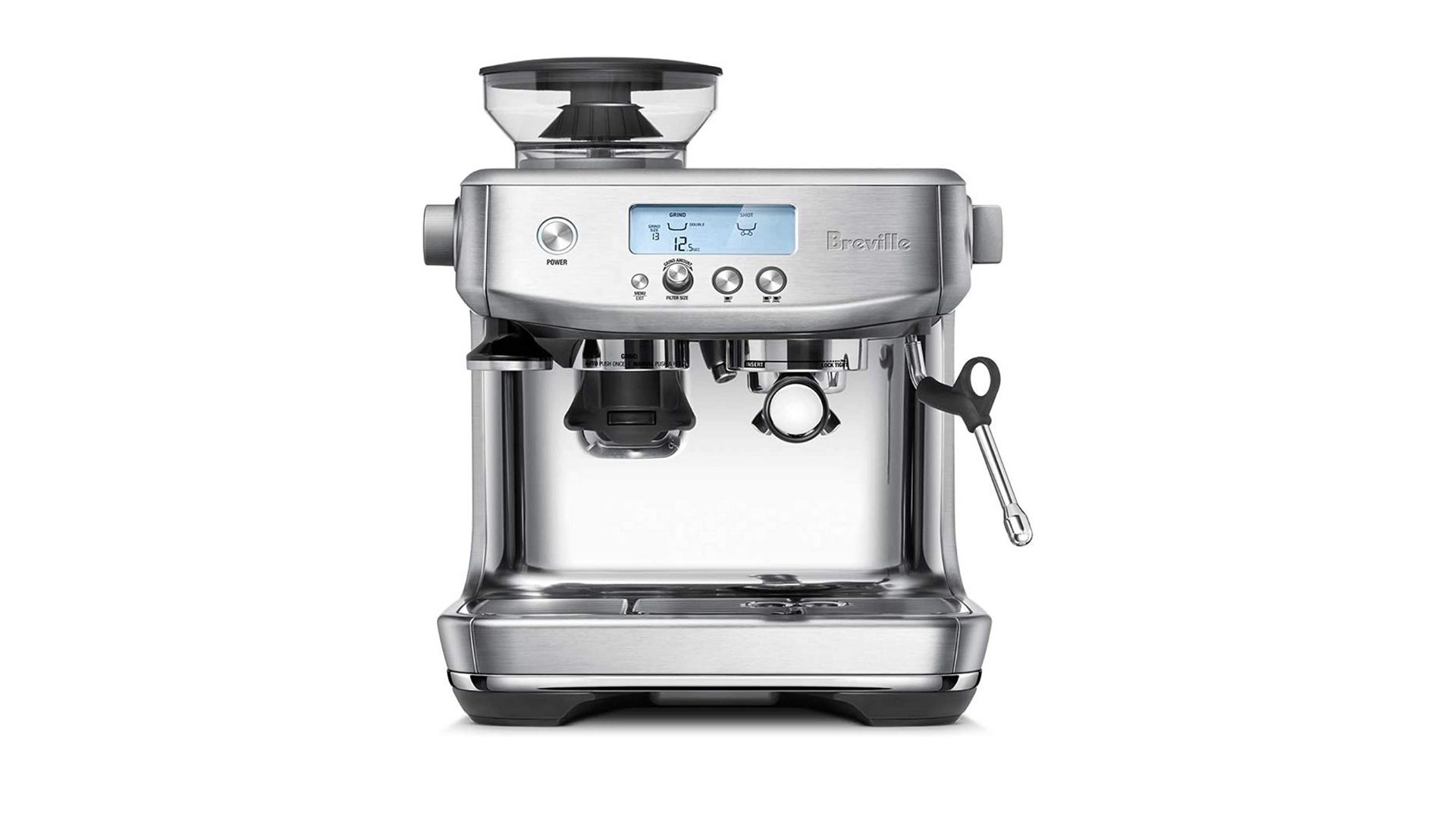
We ranked this at the top of our guide to the best espresso makers. It has everything you need to make the perfect coffee at home. We liked the controls and adjustable temperatures, especially because they're easy to use. It's big, but you won't need any other coffee paraphernalia in your home.
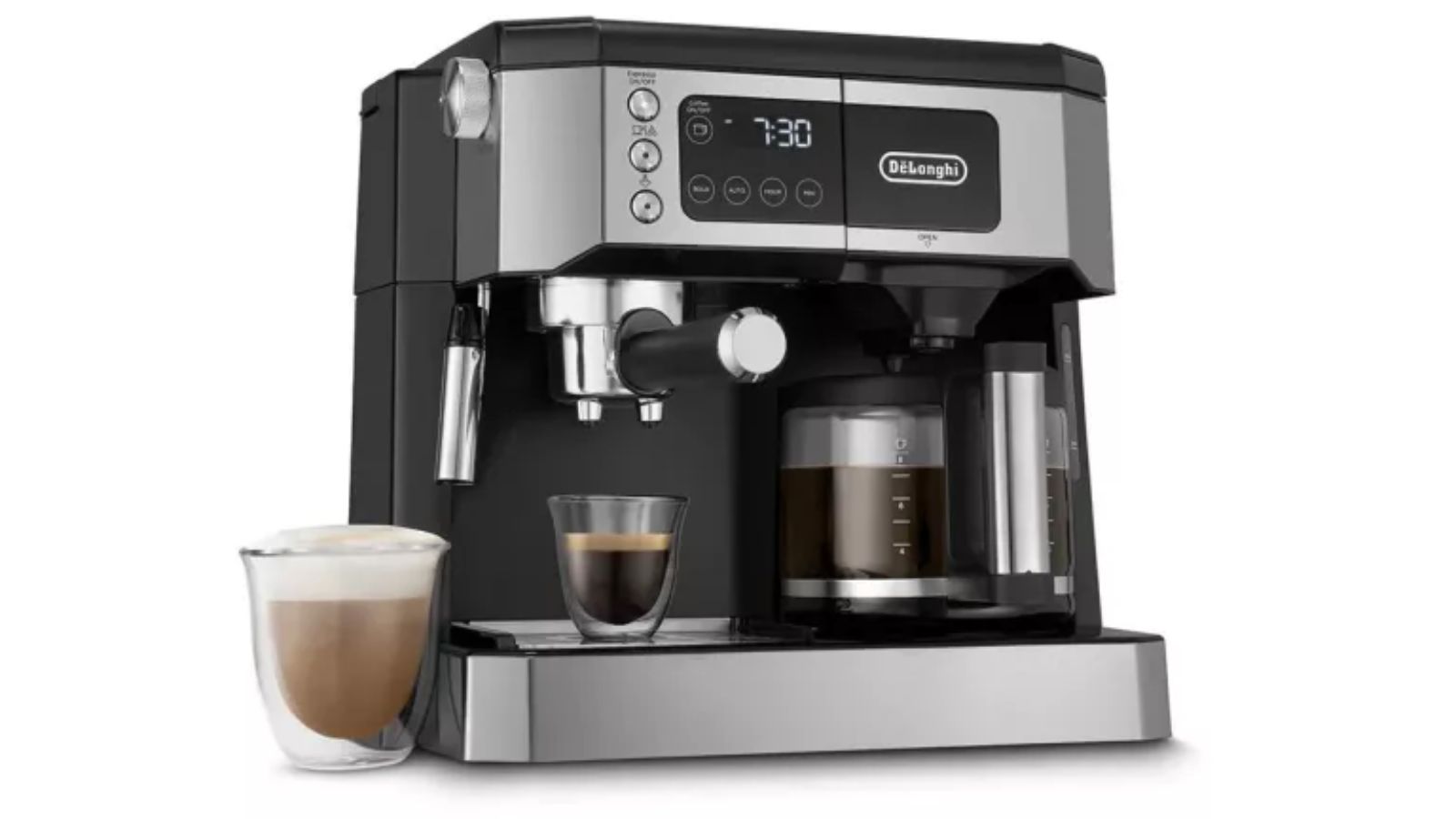
Aside from being exceptional value, this espresso machine can do it all. Programmed to handle a variety of coffee and espresso options, you can enjoy consistently coffee every day. The touchscreen interface is easy to use and with a programmable timer, you can tailor it to make the perfect coffee exactly when you want it.
Why are espresso machines so expensive?
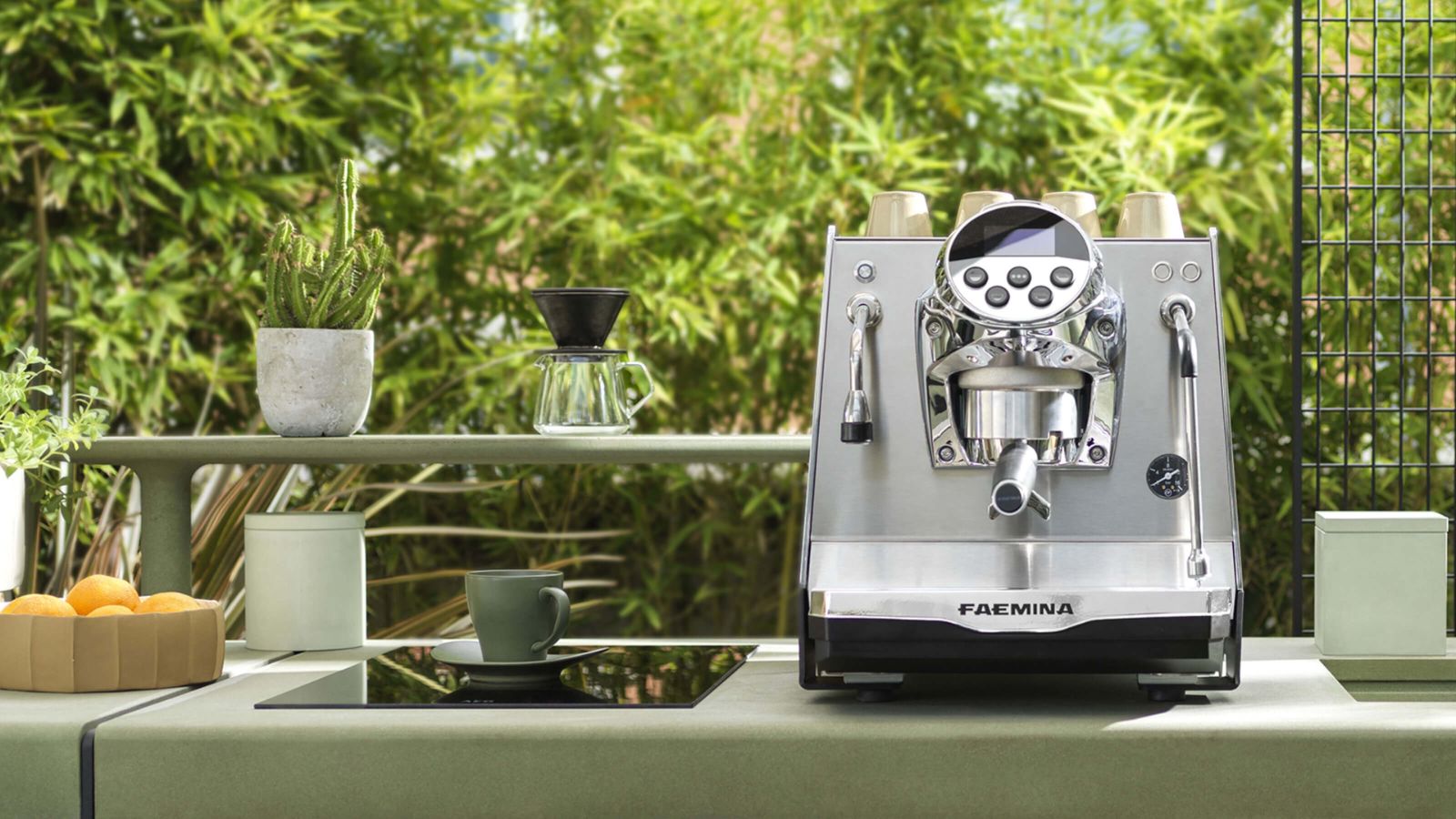
There’s no escaping that, compared to a French press, espresso machines are expensive. The process of extracting and brewing the perfect espresso is scientific. These machines need to be precise, consistent, and deliver quality results. Too much or too little pressure will affect how smooth or grainy your coffee tastes. If the water pumped through your espresso is too hot, it will taste burnt and sour. If the water is too cold, your coffee will taste weak and watery. We’ve all had disappointing coffee experiences and a good espresso machine should protect against them.
Alongside precise technology comes durability. To handle high temperatures and pressures for an extended period of time, your machine needs to be well-built and reliable. Manufacturers will use high-quality stainless steel and brass. There’s no room to cut costs: the brew group, thermoblock, boiler, and pressure stat are all crucial to a smooth, tasty brew.
Faema, iconic Italian makers of luxury coffee machines, gave me more insight into their process. They explained that the espresso machines become expensive because ‘each individual part needs to be precisely crafted in order for the machine to optimally work’. These parts are specialist and require attention to detail. They’re also not in demand, so the parts aren’t made in the same large batches which other appliances use to cut costs.
How much should I pay for an espresso machine?
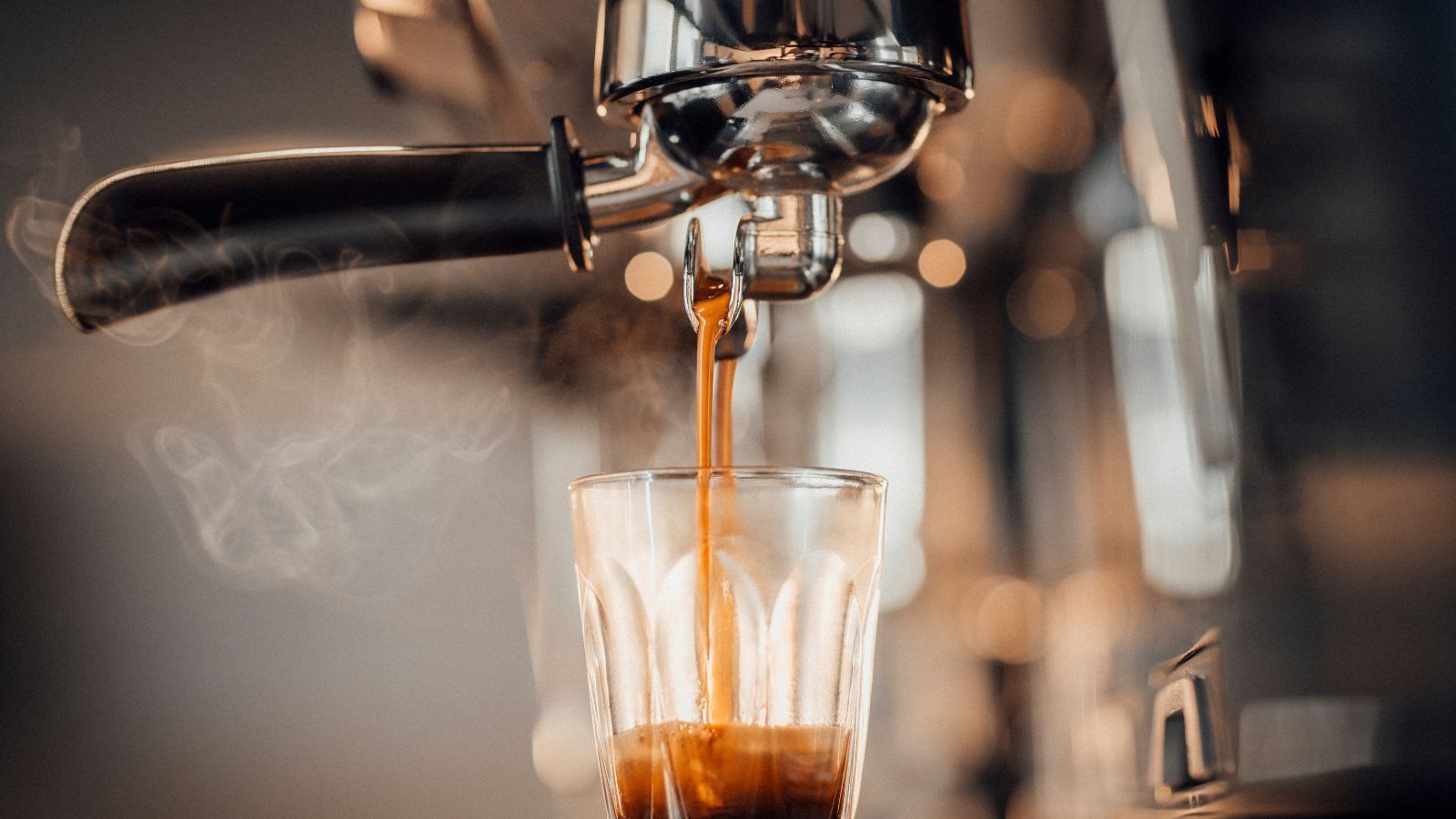
Depending on your needs, you’ll have different price ranges. I wouldn’t pay less than $600, because the machine won’t be any good. If you’re paying more than $1,500, I would start asking questions about what extras you’re getting for your money. If it has a hyper-sensitive scale, linked to an automatic grinder that can take into account bean type and humidity, you can perhaps justify creeping over $1,500.
Marko Lazarevic, roaster and owner at Craft Coffee Spot, has a few stories to tell and lessons to learn from when it comes to value. On one side, Marko told me about a cheap espresso machine he used. Mid-coffee, ‘I had a portafilter come loose in my machine in a scary explosion’. Thrown across the room, these heavy metal handles can do a lot of damage.
On the other side, Marco recalled a competition held between a barista and a non-coffee drinker. The barista was given a $400 espresso machine, whilst the non-professional was treated to a $30,000 appliance. In the taste test, the barista won. This proves that you can use a more affordable machine, as long as you use it properly. If you get a good basic model and use it skilfully, you won’t taste the lack of another $29,960. If anything, you can invest in some really good coffee beans.
What about the average user?
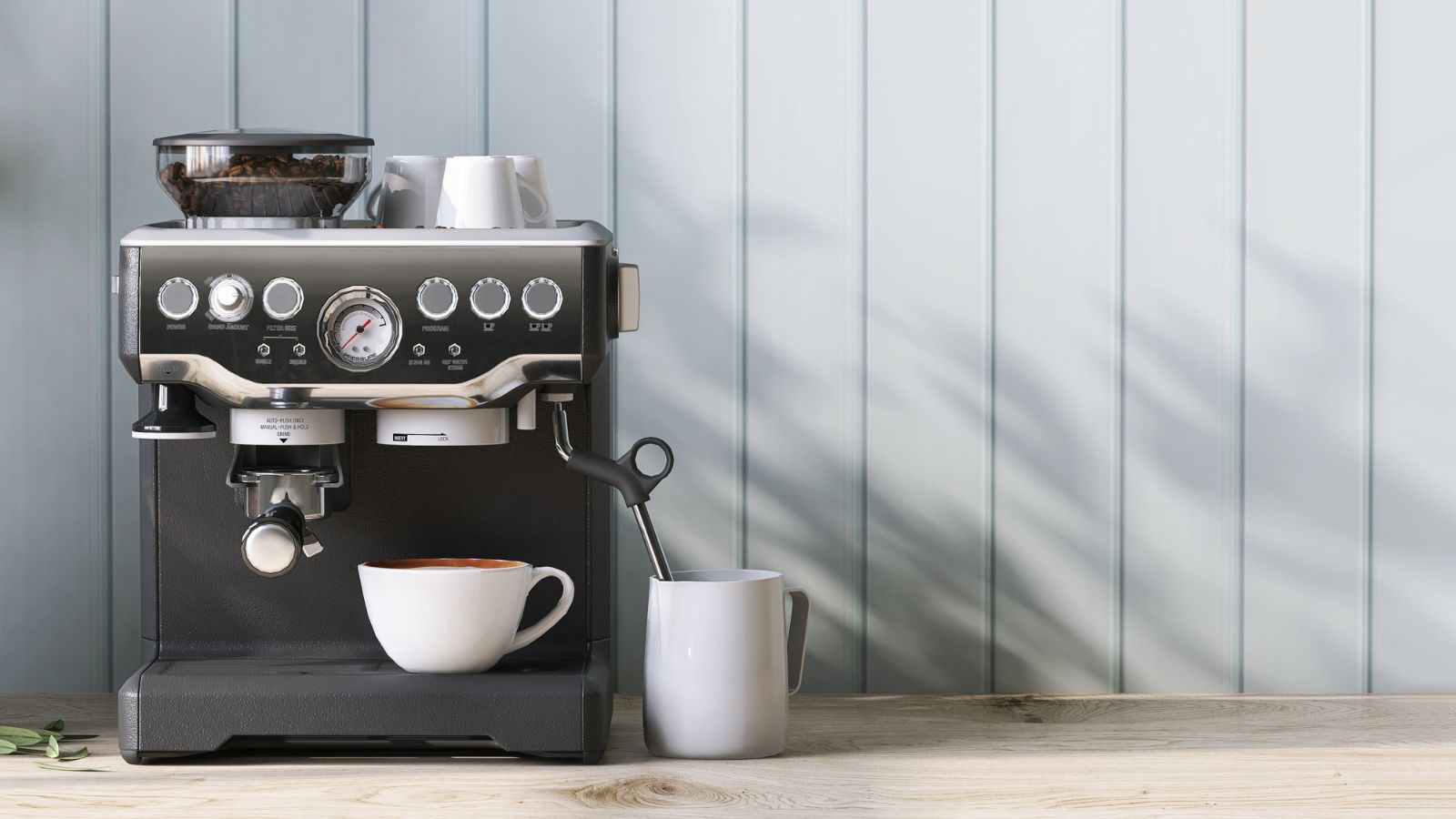
As you might imagine, lots of the baristas that I know think that domestic coffee machines are a really good price. Businesses can pay ten times what a domestic, kitchen appliance would cost. But there are a lot of other factors at play, and if you aren’t a barista, this might all sound like too much effort. I reached out to an interior designer, Elizabeth Grace. She has experience with both residential and commercial clients so has worked with styling and selecting a range of espresso machines.
We spoke about the influence of brand and reputation. There's low demand for espresso machines, so brands invest a lot of money in specialist, high-quality parts as well as intangibles like customer support in order to establish their reputation. Grace put as much value on this as she would the function of the machine. Luxury service, reliability, and quality are vital to choosing the best coffee maker for your needs.
Grace says that you’ll need to think bigger picture with your espresso machine. If you look at your house needs and then your coffee machines, you won’t get caught up in extras that you don’t need. ‘Espresso machines come with additional features that enhance the brewing process or add convenience. These features may include programmable settings, multiple brewing options, built-in grinders, steam wands, and digital displays.' Not everybody needs all of these things, so, if you’re willing to have a pared-back appliance, you don’t need to spend lots of money. Conversely, if you know you just want coffee at the touch of a button, an espresso machine may be overkill.
Are they worth it?
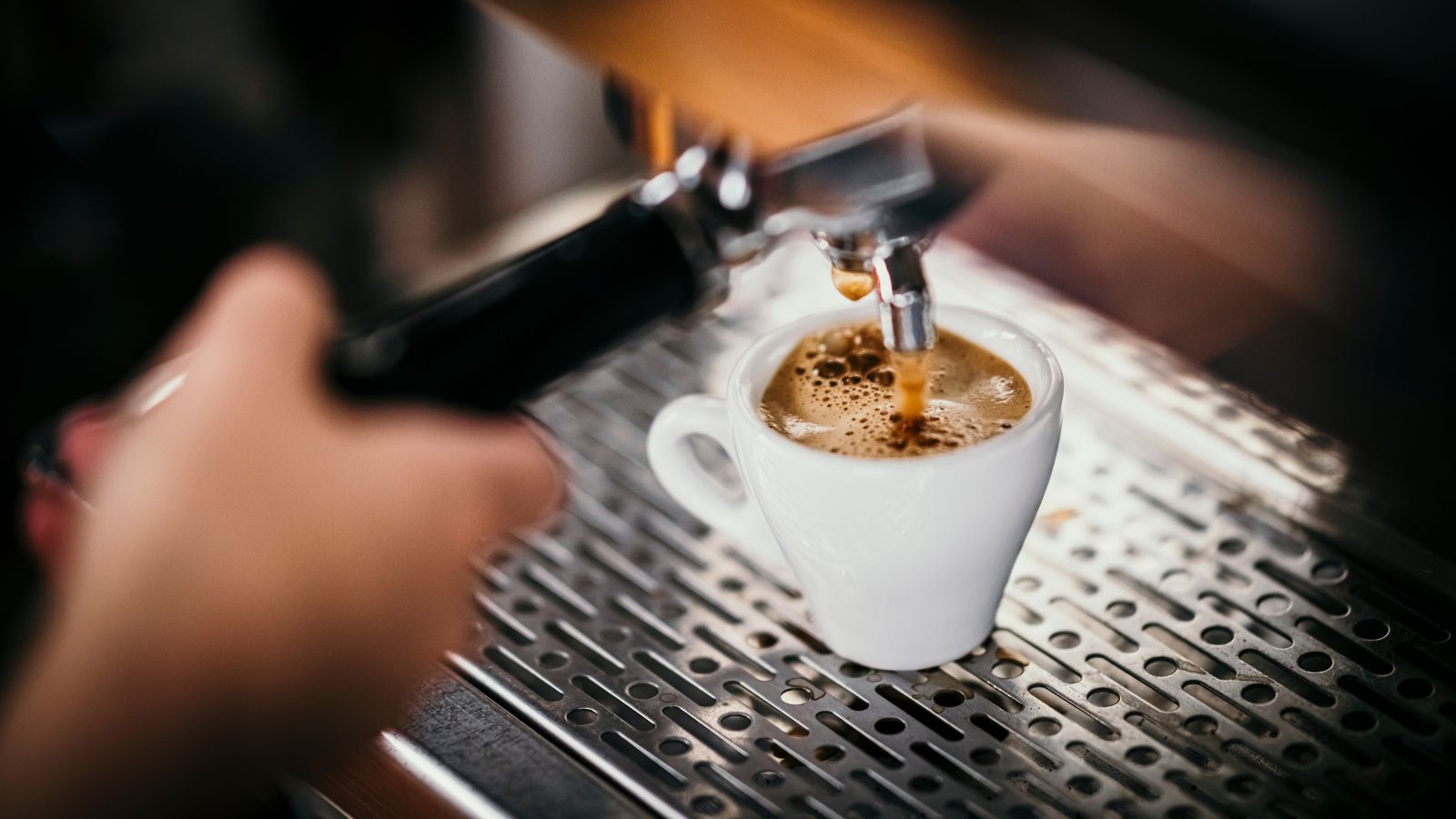
Almost everyone that I spoke to felt that espresso machines are a worthy purchase. The flavors of a home brew are powerful. They’re sweet, sour, and bitter. It’s these flavors that flourish under the high-pressure, high-temperature environments created by expensive machines.
What are the best alternatives to espresso machines?
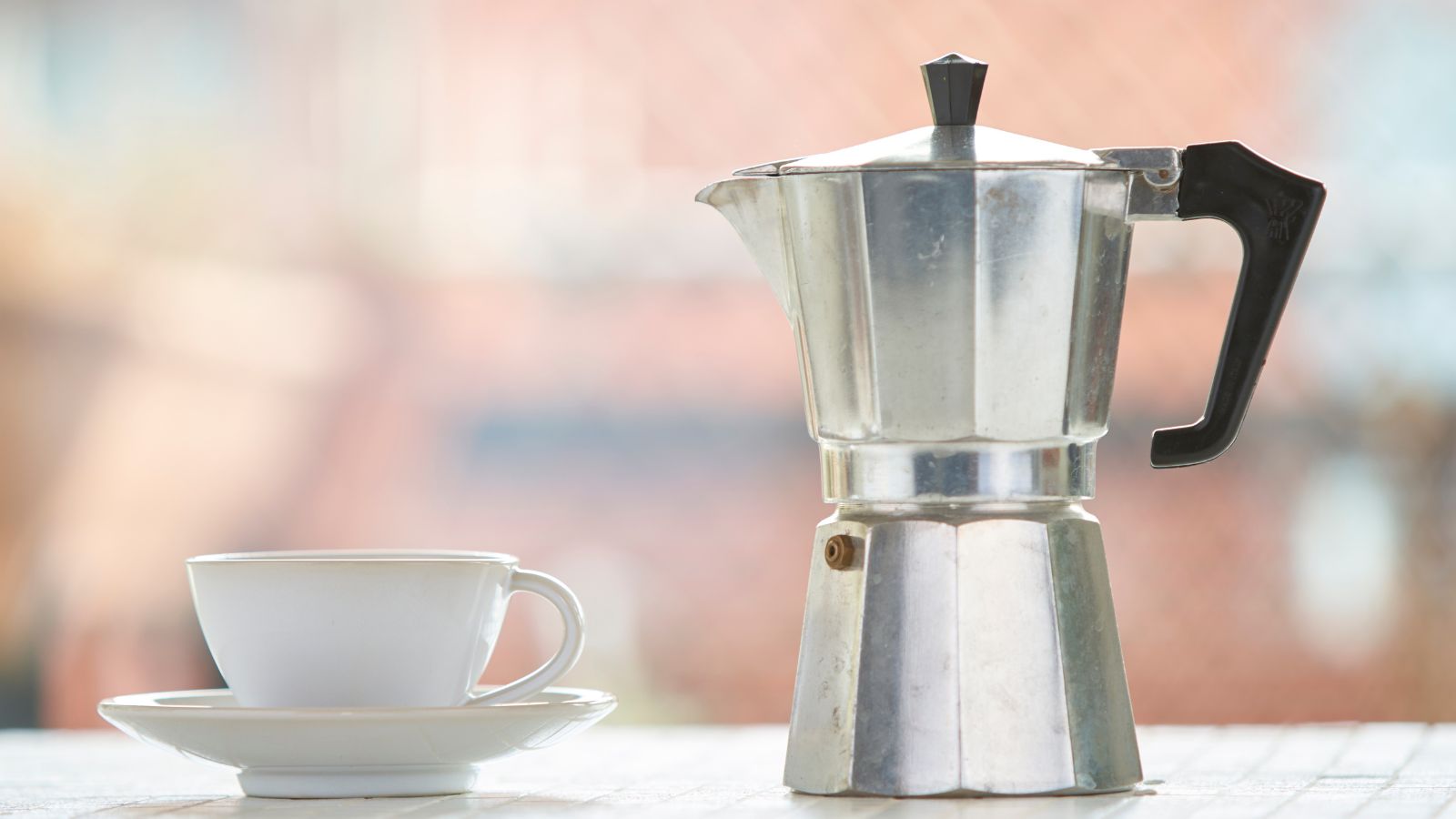
If you’ve decided that you don’t need anything fancy or elaborate and would rather pay less for your coffee, there are some really good alternatives on the market. Moka pots and French presses tend to be people’s next go-to option. You save a lot of money, but it doesn’t taste quite as good. Pod coffee machines are a really good mid-point. They aren’t really expensive and tend to be smaller than espresso machines. They offer consistent coffee and you won’t have to do much for the process to run smoothly.
FAQs
What’s the best espresso machine?
This will depend on your preference. If you're on a budget and you want quality without compromise, you can't go wrong with Breville's Bambino Plus. It makes delicious coffee, and expertly steams milk, and it feels robust too. If you're willing to spend a little more money, our favorite is Breville's The Barista Pro (available at QVC). It has everything you need for the perfect coffee and comes with all the bells and whistles: controlled grinding, adjustable brew temperature, a steam wand that swivels by 360 degrees and a handy storage tray. I tested a coffee machine that costs $6,000 and the Breville can do everything that one could.
How much should I spend on an espresso machine?
This depends on your needs. I would recommend looking at coffee machines which cost between $600 and $1,500. If they’re cheaper, you’ll pay the price with poor quality and finishes. If they’re more expensive, it’s a case of diminishing returns for the most part.
What can I buy instead of an espresso machine?
If you’ve decided that an espresso machine isn’t the appliance for you, there are lots of other ways to cultivate a good cup of coffee. We found that most people chose a French press or Moka pot as alternatives. This is because they give a strong, intense flavor. If you want a machine to do this for you, it’s worth looking at bean to cup coffee machines.
Does it make sense to buy an expensive espresso machine?
If you spend $4 on coffee every day, the math checks out. After a year of buying five coffees a week, you'll have spent over $1,000 on coffee. That covers a good espresso machine. If you look at the bigger picture and you want to save money and enjoy quality coffee at home, it does make sense. However, if you don't have coffee as often, it might not save you money as quickly.
Final thoughts
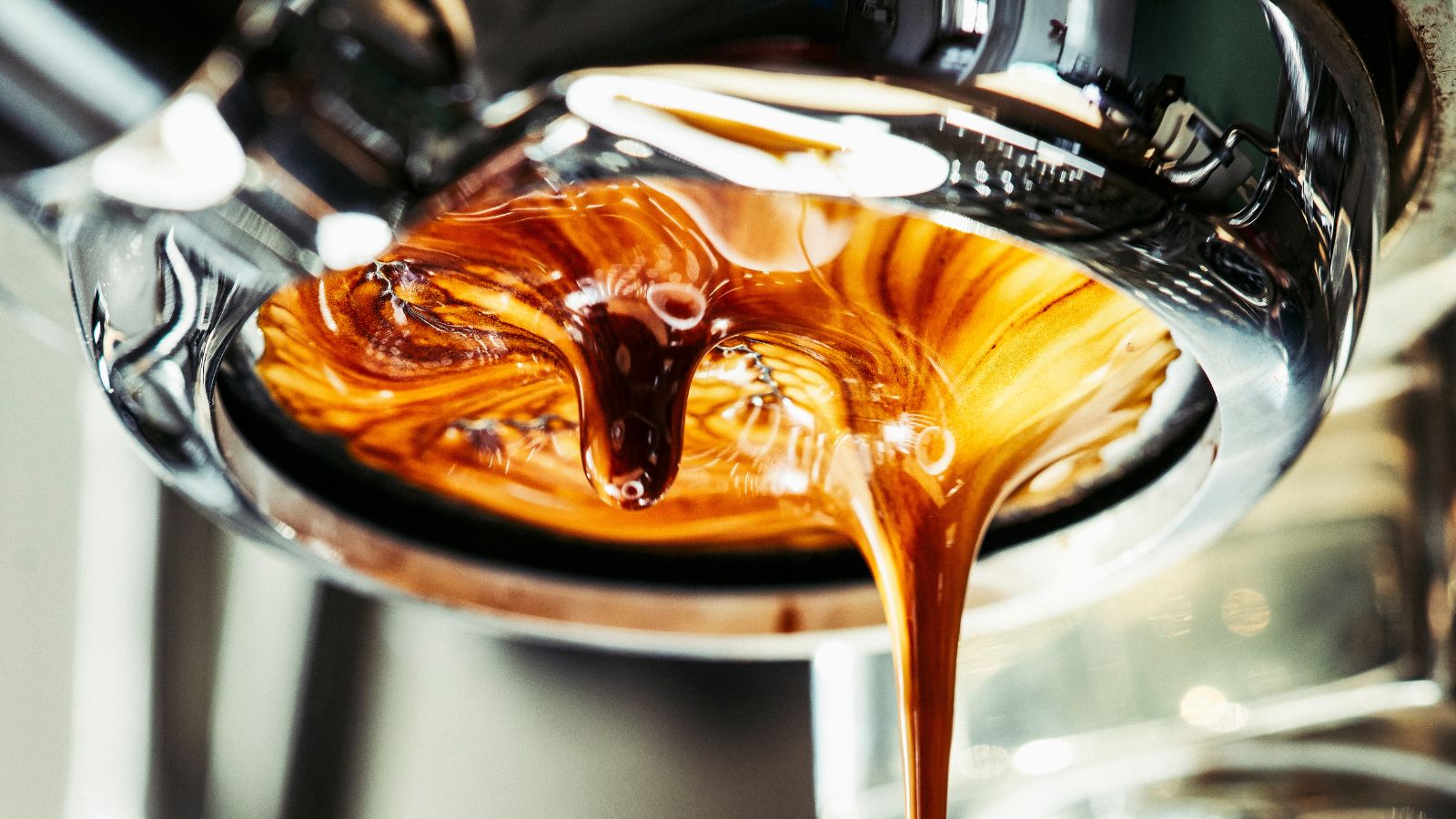
Compared to a French press, there’s no escaping that espresso machines are expensive. That doesn’t mean that they aren’t great value though. For those who appreciate a fresh cup of coffee, it’s a worthwhile investment. Trusted, reliable espresso machine brands are always keen to maintain their reputations. Whilst you might spend a lot of money, these products come with exceptional customer support, warranty and repair options, and communities to share coffee making tips with. Our guide to the best espresso machines will help you to spend wisely. Just make sure to practice your barista skills and you’ll enjoy a whole other dimension of coffee craft.
Sign up to the Homes & Gardens newsletter
Design expertise in your inbox – from inspiring decorating ideas and beautiful celebrity homes to practical gardening advice and shopping round-ups.

Laura is our eCommerce editor. As a fully qualified barista, she's our expert in all things coffee and has tested over thirty of the best coffee makers on the market. She has also interviewed Q-Graders and world-leading experts in the coffee industry, so has an intimate knowledge of all things coffee. Before joining Homes & Gardens, she studied English at Oxford University. Whilst studying, she trained as a master perfumer and worked in the luxury fragrance industry for five years. Her collection of home fragrance is extensive and she's met and interviewed five of the world's finest perfumers (also known as 'noses'). As a result of this expansive fragrance knowledge, she always puts quality and style over quantity and fads. Laura looks for products which have been designed simply and with thoughtful finishes.
-
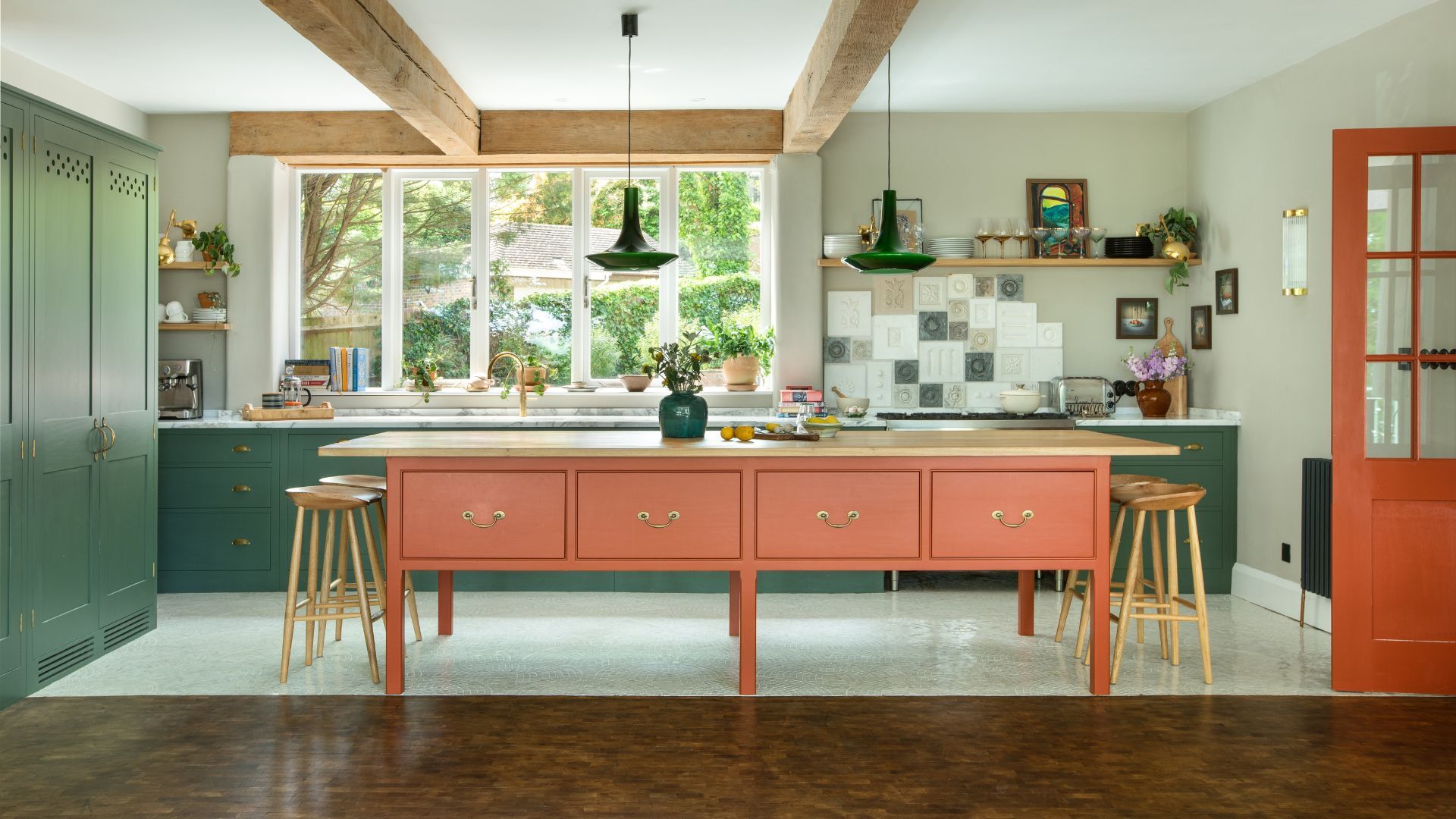 Orange and green is the bold color pairing quietly transforming homes in 2025 – here's 4 reasons why
Orange and green is the bold color pairing quietly transforming homes in 2025 – here's 4 reasons whyInterior designers are making the orange and green combination work wonders – this is how you can too
By Sophia Pouget de St Victor Published
-
 This Michelle-Pfeiffer-approved chair is made of a forebodingly unusual material, opening the debate: Is it a rustic stunner, or a danger to sitters?
This Michelle-Pfeiffer-approved chair is made of a forebodingly unusual material, opening the debate: Is it a rustic stunner, or a danger to sitters?The actress took to Instagram with a chair made of a controversially sharp material – and fans are unsure of how they feel about it
By Sophie Edwards Published